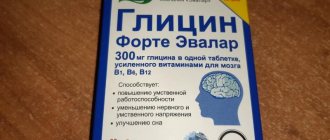Pharmacological properties
Pharmacodynamics.
Efizol is a combination drug with a pronounced local antiseptic, antibacterial and antifungal effect. used for sore throat. exhibits a mainly bacteriostatic (according to some data, bactericidal) effect against a number of gram-positive and gram-negative microorganisms, including strains resistant to antibiotics. efisol is most effective at an alkaline pH value (like the environment in the oral cavity). dequalinium chloride is a local antiseptic of the quinoline group. it is a biquaternary quinoline with antiseptic and bacteriostatic effects. Dequalinium chloride has:
- antiseptic effect, mainly local;
- antibacterial effect - mainly against gram-negative and gram-positive microorganisms, mainly against pyogenic pathogens and strains resistant to antibiotics (pyogenic streptococci, Borrelia, etc.);
- antifungal effect - mainly against Candida albicans, some Trychophyton species and epidermophytes. Does not show activity against Mycobacterium. The antibacterial effect, caused by the denaturation of proteins and enzymes of pathogens by dissolution and depolymerization, as well as glycolysis and inactivation of dehydrogenases, is a reversible effect, however, prolonged contact with the pathogen inactivates them irreversibly, which leads to disruption of protein synthesis at the ribosome level and cytolysis of the cell membrane. Surface-active cationic action underlies the bacteriostatic activity of the drug, which is more pronounced against gram-positive than gram-negative microorganisms.
Ascorbic acid, which is part of Efizol, acts on the intracellular processes of oxidation and reduction; increases the synthesis of specific antibacterial antitoxins and improves the functions of the reticuloendothelium, reduces the permeability of cell membranes, improves the condition of the capillaries of the vascular wall and limits exudative, inflammatory and allergic reactions.
Resistance of microorganisms to the drug develops slowly with long-term use (more than 15–20 days). Resistance develops faster in relation to microorganisms resistant to penicillin, streptomycin and sulfonamide, and to a lesser extent in relation to gram-positive microorganisms and fungi.
Pharmacokinetics. Efizol has a local antiseptic effect in the oral cavity. Rapidly absorbed into the gastrointestinal tract. Distributed through diffusion through the liver, lungs, kidneys. Excretion is long-term (with urine and feces).
Application
Adults and children over 4 years of age are prescribed 1 lozenge every 2–3 hours (no more than 8–10 tablets per day). The tablets are not chewed. After taking efisol, the patient is not recommended to eat or drink for 30 minutes.
It is recommended to continue treatment for another 1–2 days after the symptoms of the disease disappear. The total duration of treatment should not exceed 5–7 days (there is a risk of disrupting the development of normal bacterial flora in the mouth and throat).
Children. The drug in this dosage form is not used in children under 4 years of age due to the risk of aspiration.
Contraindications
The use of Efizol is contraindicated in:
- the patient's tendency to form thrombosis ;
- personal hypersensitivity to active or other ingredients of drugs;
- existing thrombosis ;
- diabetes mellitus;
- diagnosed thrombophlebitis ;
- severe kidney pathologies ;
- sugar intolerance;
- allergic manifestations observed in the anamnesis in relation to quaternary ammonium compounds (in particular benzalkonium chloride );
- under the age of 4 years.
Side effects
The drug is generally well tolerated and there have been no reports of serious side effects. however, the following adverse drug reactions associated with dequalinium chloride are possible:
from the digestive tract: nausea, vomiting, burning sensation and irritation in the throat, dry mouth, oral dysbacteriosis (with long-term use in high doses);
other: allergic reactions are very rarely possible;
local reactions: in rare cases, namely with abuse, ulcers and necrosis may occur.
The following adverse reactions associated with ascorbic acid are possible:
from the immune system: allergic reactions, including rash, itching, angioedema, urticaria; sometimes - anaphylactic shock in the presence of sensitization;
from the skin and subcutaneous tissue: eczema;
from the cardiovascular system: hypertension;
from the nervous system: increased excitability, sleep disturbance, headache, feeling of heat, increased fatigue;
with long-term use in high doses (more than 1 g of ascorbic acid per day), the following are possible: damage to the insular apparatus of the pancreas (hyperglycemia, glycosuria) and disruption of glycogen synthesis before the onset of diabetes mellitus; myocardial dystrophy, thrombocytosis, hyperprothrombinemia, erythrocytopenia, neutrophilic leukocytosis; in patients with deficiency of glucose-6-phosphate dehydrogenase of blood cells, it can cause hemolysis of red blood cells; dysbacteriosis of the oral cavity; irritation of the mucous membrane of the digestive tract, heartburn, vomiting, diarrhea, damage to the glomerular apparatus of the kidneys. Crystalluria, formation of urate, cystine and/or oxalate stones in the kidneys and urinary tract, renal failure, impaired zinc and copper metabolism.
special instructions
Due to the absence of an analgesic component in the drug, it is not advisable to use it in inflammatory processes accompanied by severe sore throat. if there are main clinical symptoms of generalized infection, you should consult a doctor who will prescribe systemic antibacterial treatment. If any side effects occur, the drug should be stopped. simultaneous use with other drugs for local treatment should be carried out with caution, under the supervision of a physician.
The absorption of ascorbic acid may be impaired by intestinal dyskinesia, enteritis and achylia.
Use with caution in patients with glucose-6-phosphate dehydrogenase deficiency.
Ascorbic acid as a reducing agent can affect the results of laboratory tests, for example, when determining blood glucose, bilirubin, transaminase activity, and LDH.
When taking ascorbic acid more than 1 g/day and long-term use, which exceeds more than 3 times the recommended daily dose and duration of treatment with Efizol, it is necessary to monitor kidney function and blood pressure levels, as well as pancreatic function. The drug should be used with caution in patients with a history of kidney disease.
In case of urolithiasis, the daily dose of ascorbic acid should not exceed 1 g, since there is a risk of the formation of calcium oxalate stones when using ascorbic acid in high doses in patients prone to the formation of kidney stones. In patients with galactosemia, the drug should be used with caution. Because ascorbic acid increases iron absorption, its use in high doses, more than 1 g, may be harmful to patients with hemochromatosis, thalassemia, polycythemia, leukemia and sideroblastic anemia. In patients with high iron levels in the body, the drug should be used in recommended doses.
High doses of the drug should not be prescribed to patients with increased blood clotting.
Use during pregnancy and lactation. During pregnancy and lactation, the drug is used with caution, under the supervision of a doctor, strictly observing the recommended doses.
The ability to influence reaction speed when driving vehicles or working with other mechanisms. The drug does not affect the performance of work that requires increased attention (driving vehicles and working with other mechanisms).
Analogs
Level 4 ATX code matches:
Falimint
Suprima-ENT
Ingalipt-N
Strepsils Plus
Strepsils
Ingalipt
TheraFlu LAR
Hexoral Tabs
Lisak
Angilex
Kameton
Anzibel
Agisept
Yox
Lugol's solution with glycerin
Lugol
Laripront
Stopangin 2A
Stopangin
Septolete Neo
There are many analogues of the drug Efizol, the most famous of which are:
- Coldact;
- Lisak;
- Angi Sept;
- Yox;
- Angilex;
- Decathylene;
- Gripcold;
- Anzibel;
- Ingalipt;
- Agisept;
- Hexalize;
- Kameton;
- Lisobakt;
- Neo-angin;
- Orasept;
- Septolete;
- Strepsils;
- Falimint;
- Hepilor , etc.
Interactions
The antibacterial activity of dequalinium chloride is reduced by the simultaneous use of detergents, such as toothpaste.
Absorption of ascorbic acid is reduced with simultaneous use of oral contraceptives, consumption of fruit or vegetable juices, and alkaline drinking. Ascorbic acid, when administered orally, increases the absorption of penicillin, tetracycline, iron, and also promotes the absorption of aluminum in the intestine, which should be taken into account during simultaneous treatment with antacids containing aluminum.
Ascorbic acid reduces the effectiveness of heparin and indirect anticoagulants and increases the risk of developing crystalluria when treated with salicylates. The simultaneous use of ascorbic acid and deferoxamine increases tissue toxicity of iron, especially in the heart muscle, which can lead to decompensation of the circulatory system. Ascorbic acid can be taken only 2 hours after the deferoxamine injection.
Long-term use of high doses of ascorbic acid by persons treated with disulfiram inhibits the disulfiram-alcohol reaction. High doses of ascorbic acid reduce the effectiveness of tricyclic antidepressants, neuroleptics - phenothiazine derivatives, tubular reabsorption of amphetamine, and interfere with the excretion of mexiletine by the kidneys.
Ascorbic acid increases the overall clearance of ethyl alcohol. Quinoline drugs, calcium chloride, salicylates, and corticosteroids, when used for a long time, reduce the reserves of ascorbic acid in the body.
When taken simultaneously with sodium polystyrene sulfonate (a drug for the treatment of hyperkalemia), the development of severe necrotic lesions of the skin and mucous membranes, especially the gastrointestinal tract, is likely.
Similar drugs:
- Chlorhexidine bigluconate Concentrate for external use
- Lugol Solution for topical use
- Lugol solution with glycerin Solution for topical use
- Chlorhexidine bigluconate Substance-liquid
- Tea tree DN Ointment for external use
- Ioddicerinum Solution for topical use
- Lugol Oral Spray
- Miramistin (Miramistin) Solution for topical use
- Amol Oral solution
- Falimint Dragee
** The Drug Directory is intended for informational purposes only. For more complete information, please refer to the manufacturer's instructions. Do not self-medicate; Before starting to use the drug Efizol, you should consult a doctor. EUROLAB is not responsible for the consequences caused by the use of information posted on the portal. Any information on the site does not replace medical advice and cannot serve as a guarantee of the positive effect of the drug.
Are you interested in the drug Efizol? Do you want to know more detailed information or do you need a doctor's examination? Or do you need an inspection? You can make an appointment with a doctor - the Euro lab is always at your service! The best doctors will examine you, advise you, provide the necessary assistance and make a diagnosis. You can also call a doctor at home . Euro lab clinic is open for you around the clock.
** Attention! The information presented in this medication guide is intended for medical professionals and should not be used as a basis for self-medication. The description of the drug Efizol is provided for informational purposes and is not intended for prescribing treatment without the participation of a doctor. Patients need to consult a specialist!
If you are interested in any other drugs and medications, their descriptions and instructions for use, information about the composition and form of release, indications for use and side effects, methods of use, prices and reviews of drugs, or you have any other questions and suggestions - write to us, we will definitely try to help you.
Overdose
Increased manifestations of adverse reactions. ascorbic acid is well tolerated. It is a water-soluble vitamin and excess amounts are excreted in the urine. however, with long-term use of vitamin C in high doses, inhibition of the function of the insular apparatus of the pancreas is possible, which requires monitoring the condition of the latter. overdose may lead to changes in the renal excretion of ascorbic and uric acid due to acetylation of urine with the risk of precipitation of oxalate stones.
Use of the drug in high doses may lead to vomiting, nausea or diarrhea, which disappear after its discontinuation. Treatment is symptomatic.
Efizol price, where to buy
The price of Efizol fluctuates around 40-50 hryvnia for 20 tablets.
- Online pharmacies in RussiaRussia
- Online pharmacies in UkraineUkraine
- Online pharmacies in KazakhstanKazakhstan
LuxPharma* special offer
- Efizol tab.
d/rass. N20 1090 rub. order
show more
Pharmacy24
- Efizol N20 lozenges Balkanfarma-Razgrad, Bulgaria
57 UAH.order
PaniPharmacy
- Efizol tablets Efizol tablets. d/sos. No. 20 Bulgaria, Balkanpharma-Dupnitza
57 UAH order
show more
Note!
Description of the drug Efizol table. d/rass. No. 20 on this page is a simplified author’s version of the apteka911 website, created on the basis of the instructions for use.
Before purchasing or using the drug, you should consult your doctor and read the manufacturer's original instructions (attached to each package of the drug). Information about the drug is provided for informational purposes only and should not be used as a guide to self-medication. Only a doctor can decide to prescribe the drug, as well as determine the dose and methods of its use.
Efizol tablets, instructions for use
Instructions for use of Efizol suggest the use of absorbable tablets for patients over 4 years of age. The recommended single dosage is equal to 1 tablet, dissolved every 2-3 hours (but not more than 8-10 pieces per 24 hours). Chewing tablets is not allowed. After dissolving one tablet, the patient is advised to refrain from eating and drinking for half an hour.
After the disappearance of the symptoms of the painful condition, to consolidate the effect, treatment should be continued for another 24-48 hours, but limit the overall course of therapy to a maximum of seven days (due to the risk of the formation of dysbacteriosis ).


